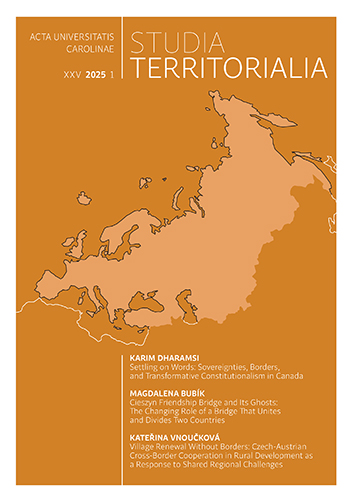AUC Studia Territorialia je recenzovaný akademický časopis z oboru teritoriálních studií. Zaměřuje se na otázky politického, hospodářského, společenského a kulturního vývoje zemí Severní Ameriky, Evropy a postsovětské Eurasie ve 20. a 21. století. Vznikl v roce 2001; v současnosti vychází dvakrát ročně, a to v elektronické a tištěné podobě. Publikuje původní odborné studie, recenze, zprávy o knižních novinkách, konferencích a probíhajícím výzkumu, jakož i jiné kratší odborné texty. Časopis vydává Institut mezinárodních studií FSV UK.
AUC STUDIA TERRITORIALIA, Vol 15 No 3 (2015), 27–44
John Adams and the Politics of Disjunction
Marcin Gajek
DOI: https://doi.org/10.14712/23363231.2016.2
zveřejněno: 08. 06. 2016
Abstract
While John Adams’ position as one of the prominent founding fathers has never been disputed, his presidency is predominantly assessed as mediocre. Many scholars argued that Adams was not only deprived of leadership and executive skills, but that he also lacked a coherent policy vision. The present paper argues that Adams’ failure as a chief-executive resulted not from the lack of a set agenda but rather from his outdated visions of politics and presidency. Both his leadership style and specific policies pursued by him constitute an example of the politics of disjunction. His desire to follow Washington’s Farewell Address was doomed to failure because of the quick transformation of American politics at the beginning of the nineteenth century. At the same time, his attachment to the classical ideal of the “aristocratic republic” was indefensible in the era of progressing democratization of popular moods. Combined, those two elements resulted in Adams failing to provide strong leadership to the Federalist party and to his inability to secure presidential re-election.
klíčová slova: United States; John Adams; presidency; politics of disjunction
148 x 210 mm
vychází: 2 x ročně
cena tištěného čísla: 180 Kč
ISSN: 1213-4449
E-ISSN: 2336-3231
